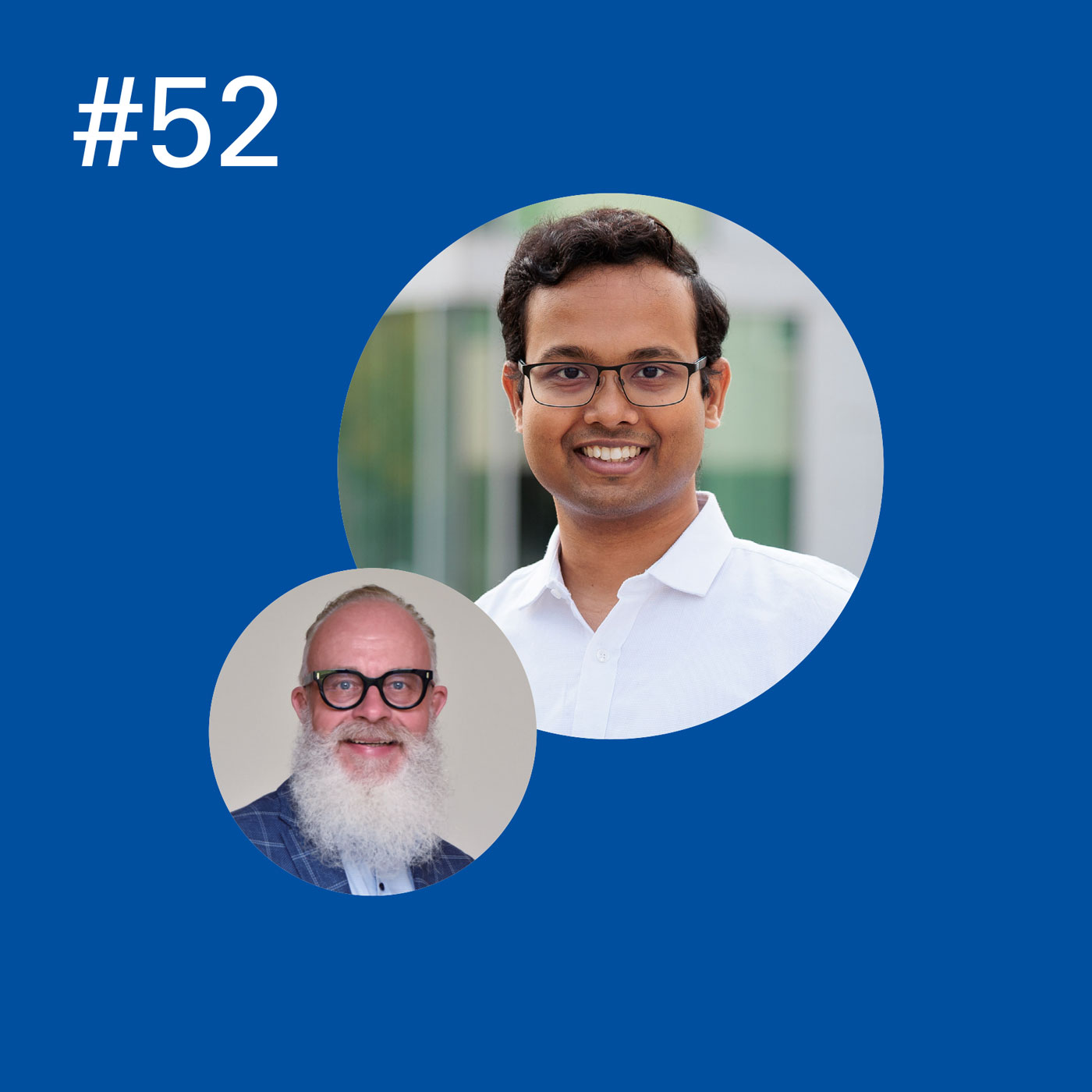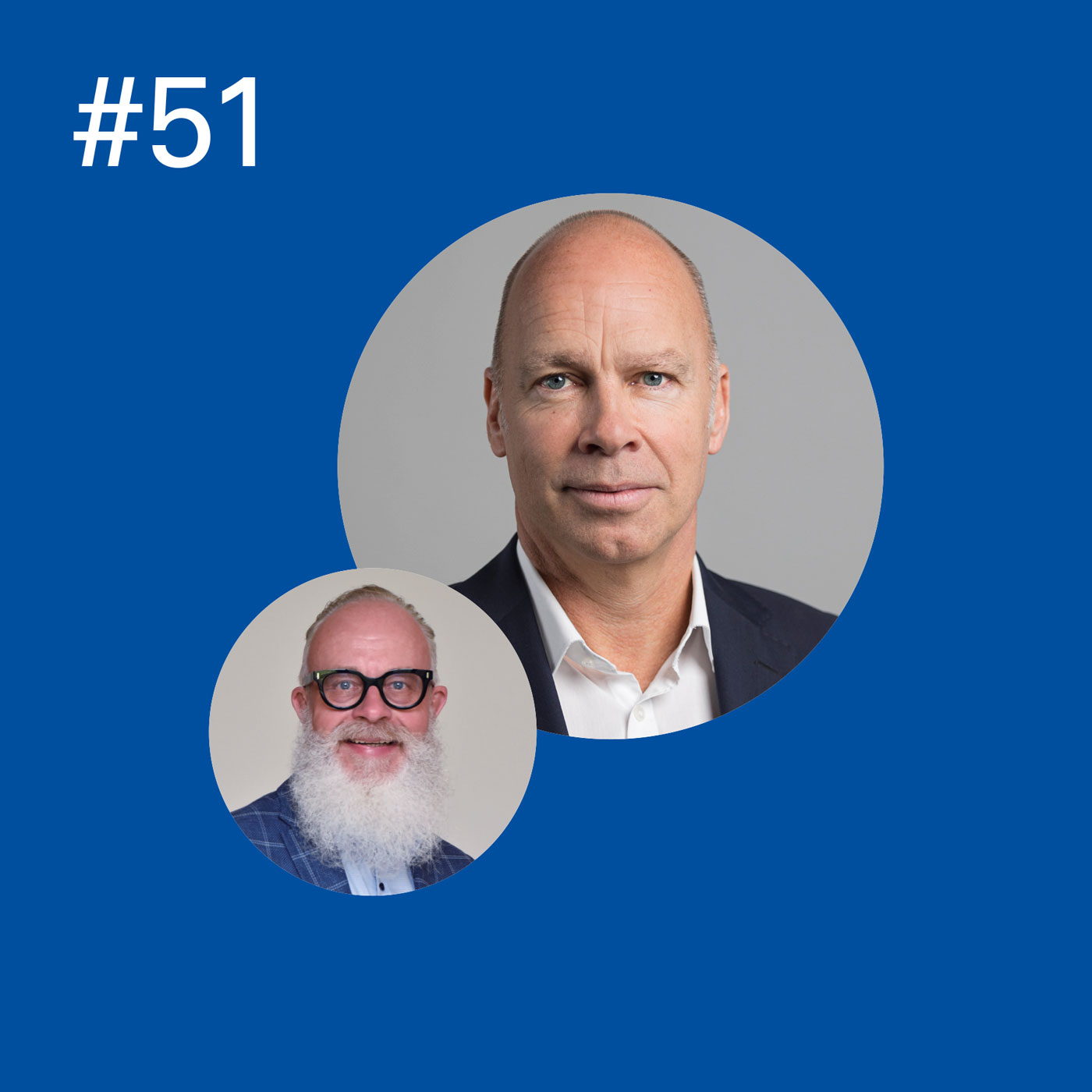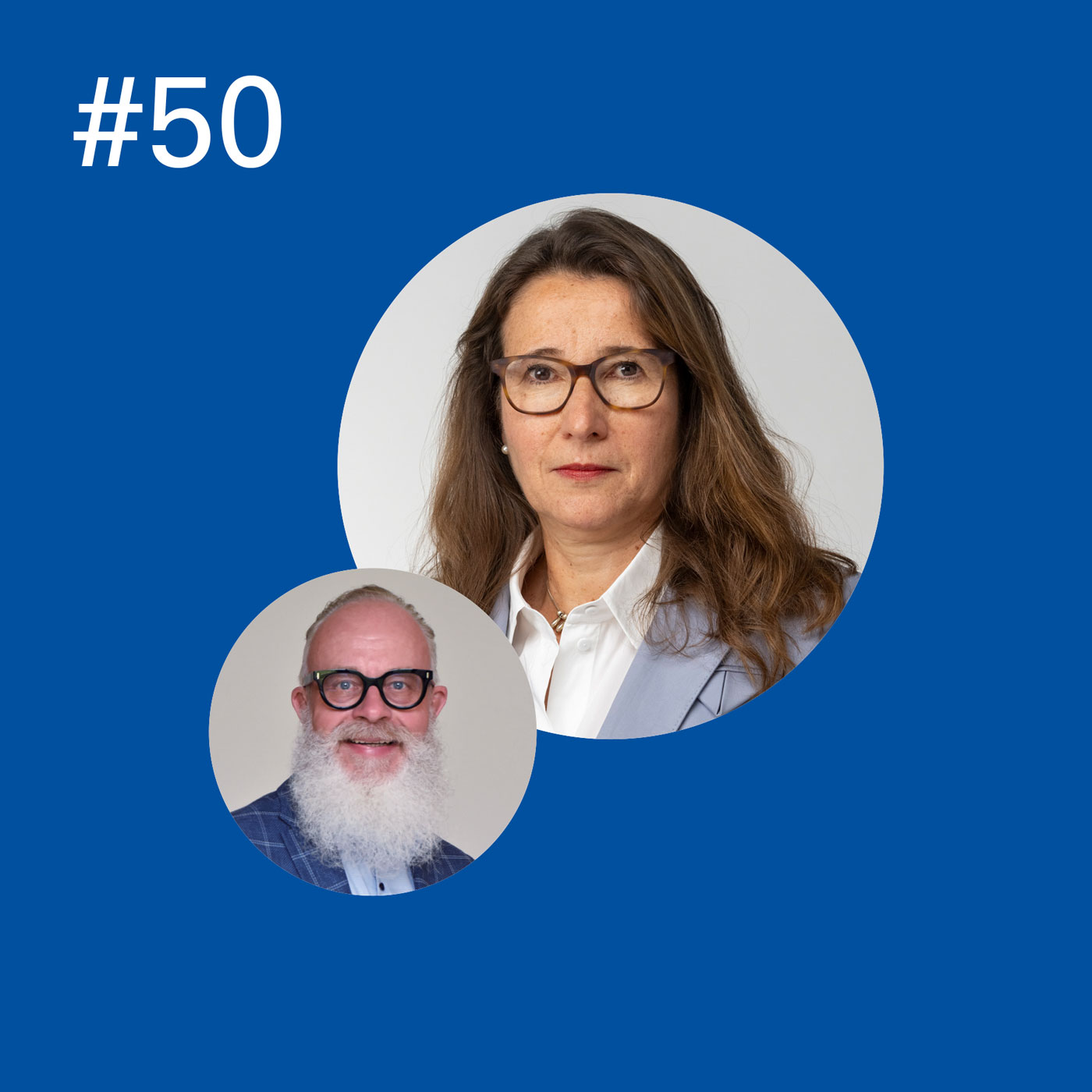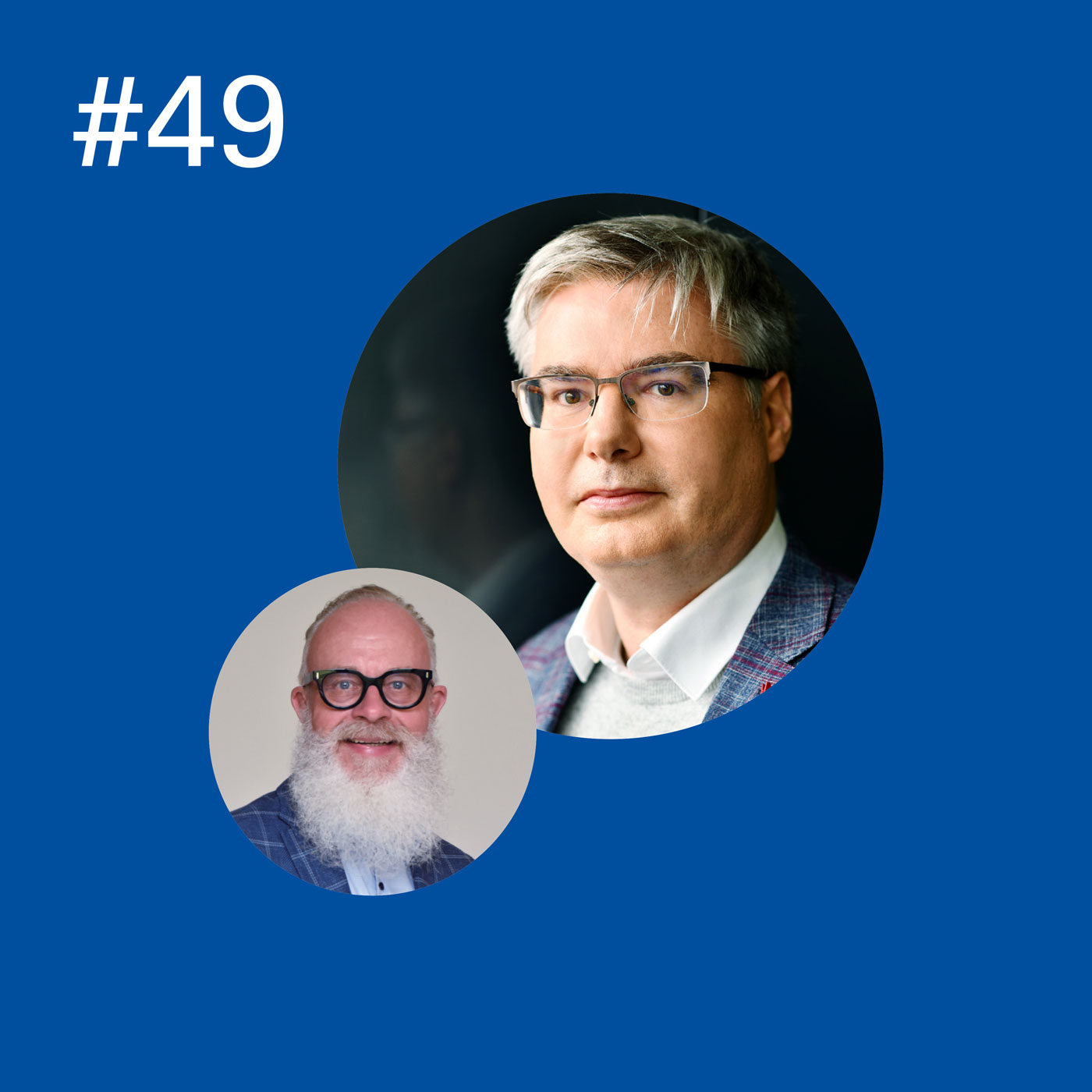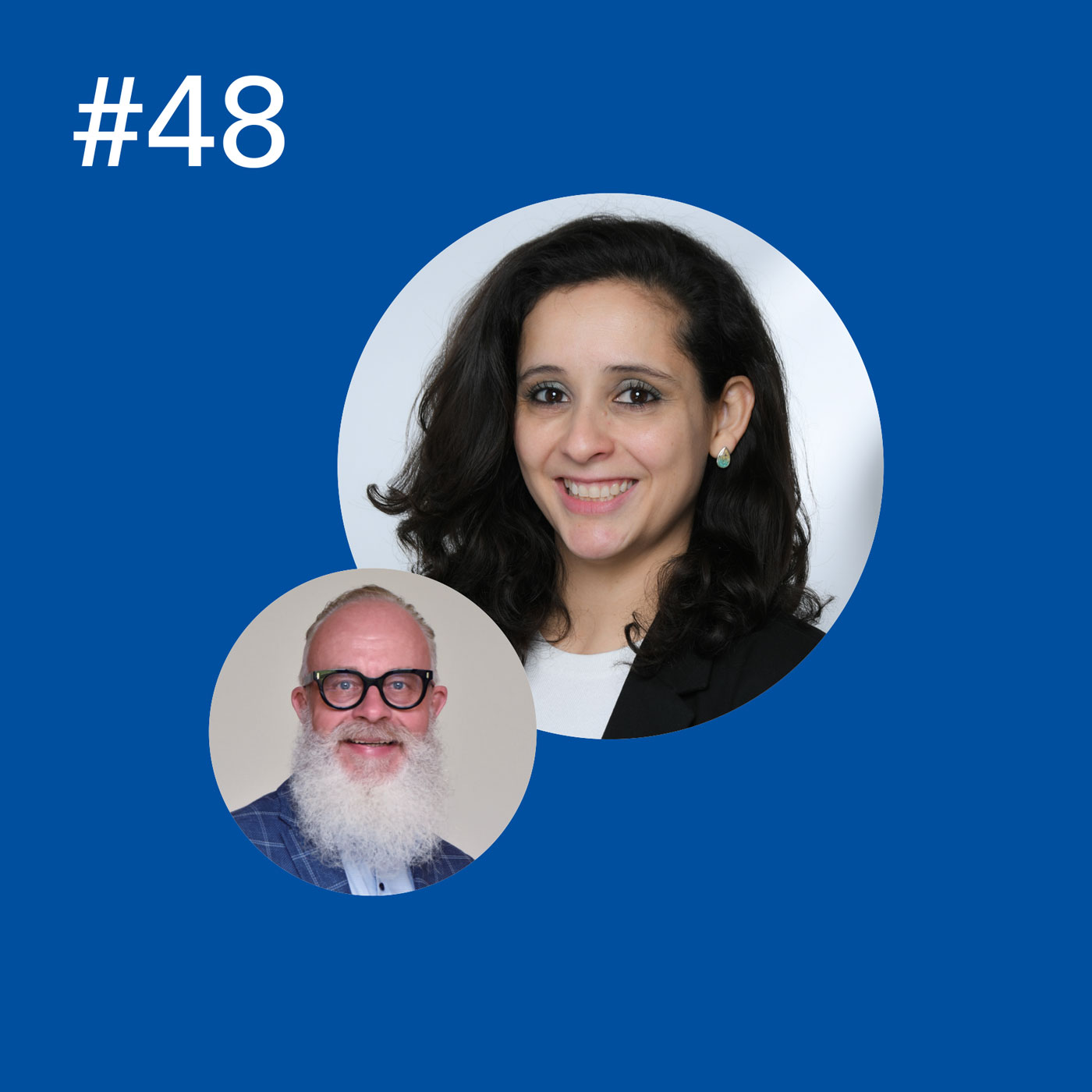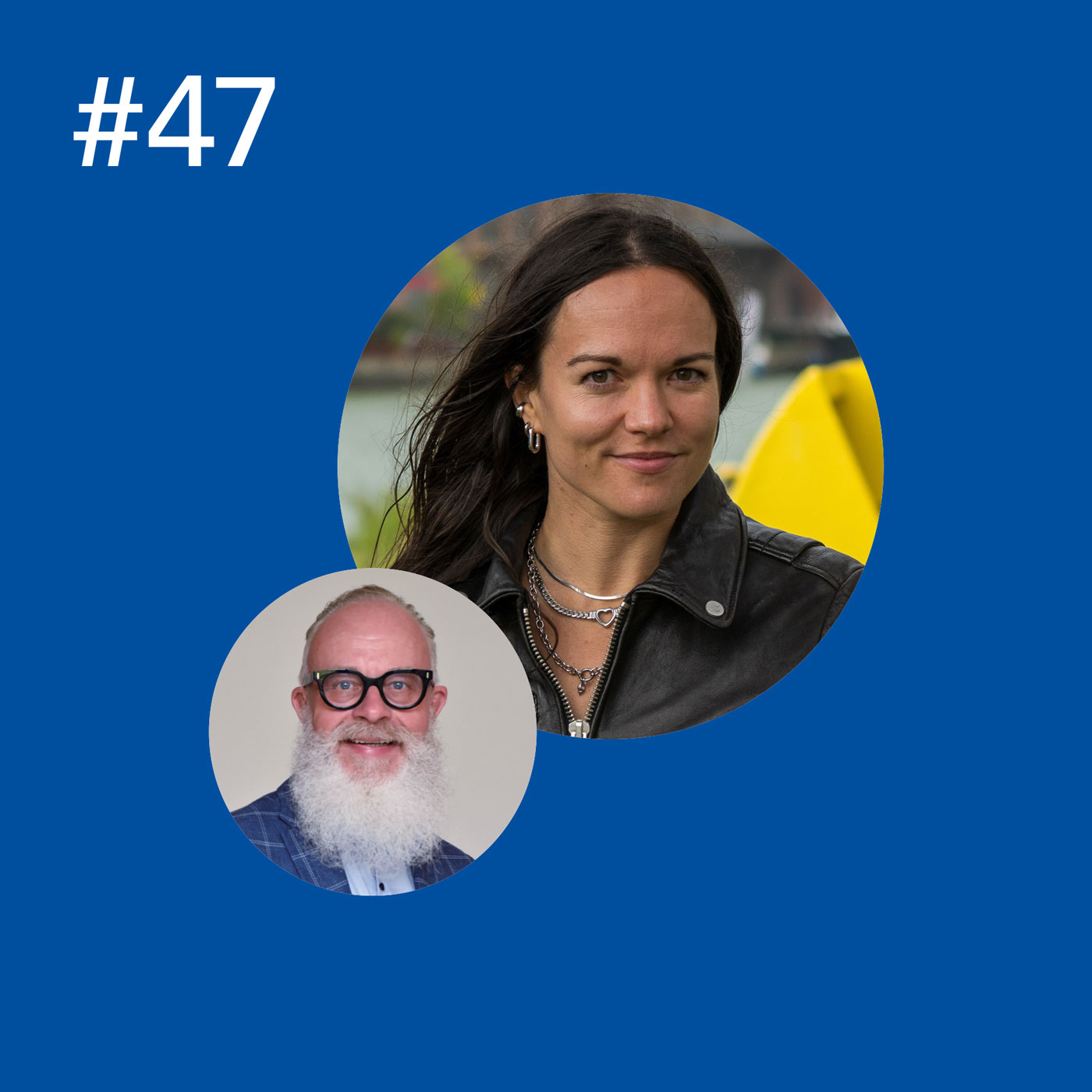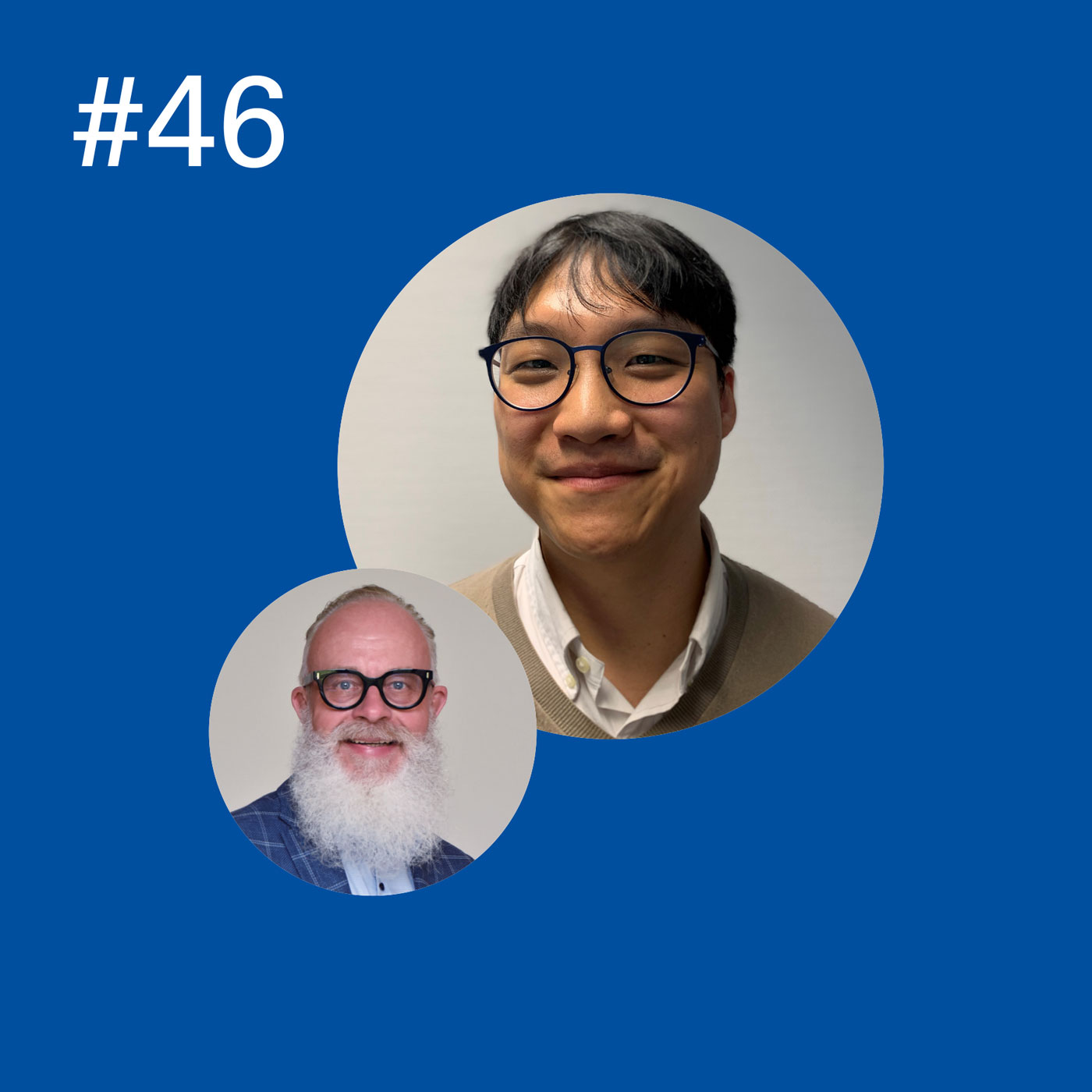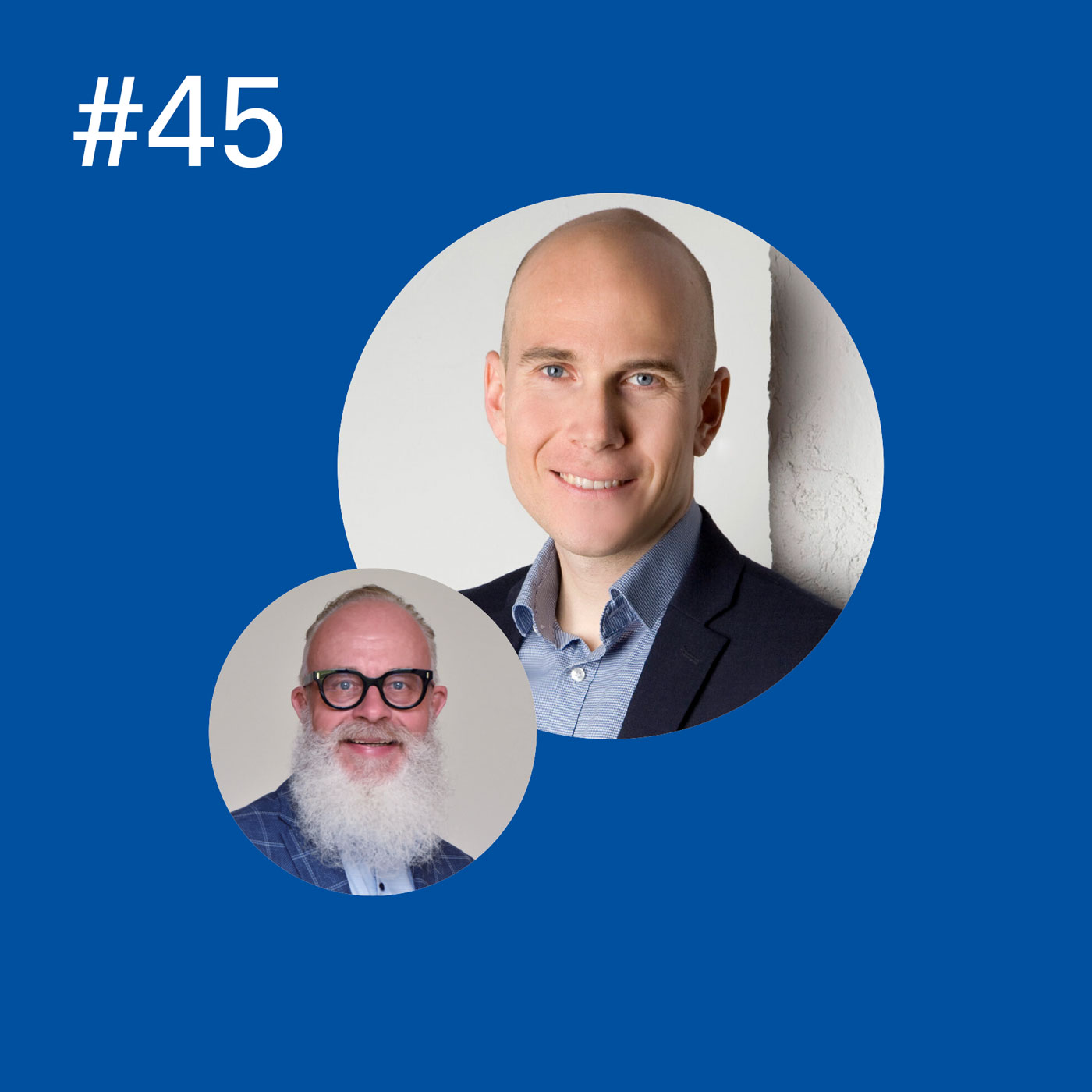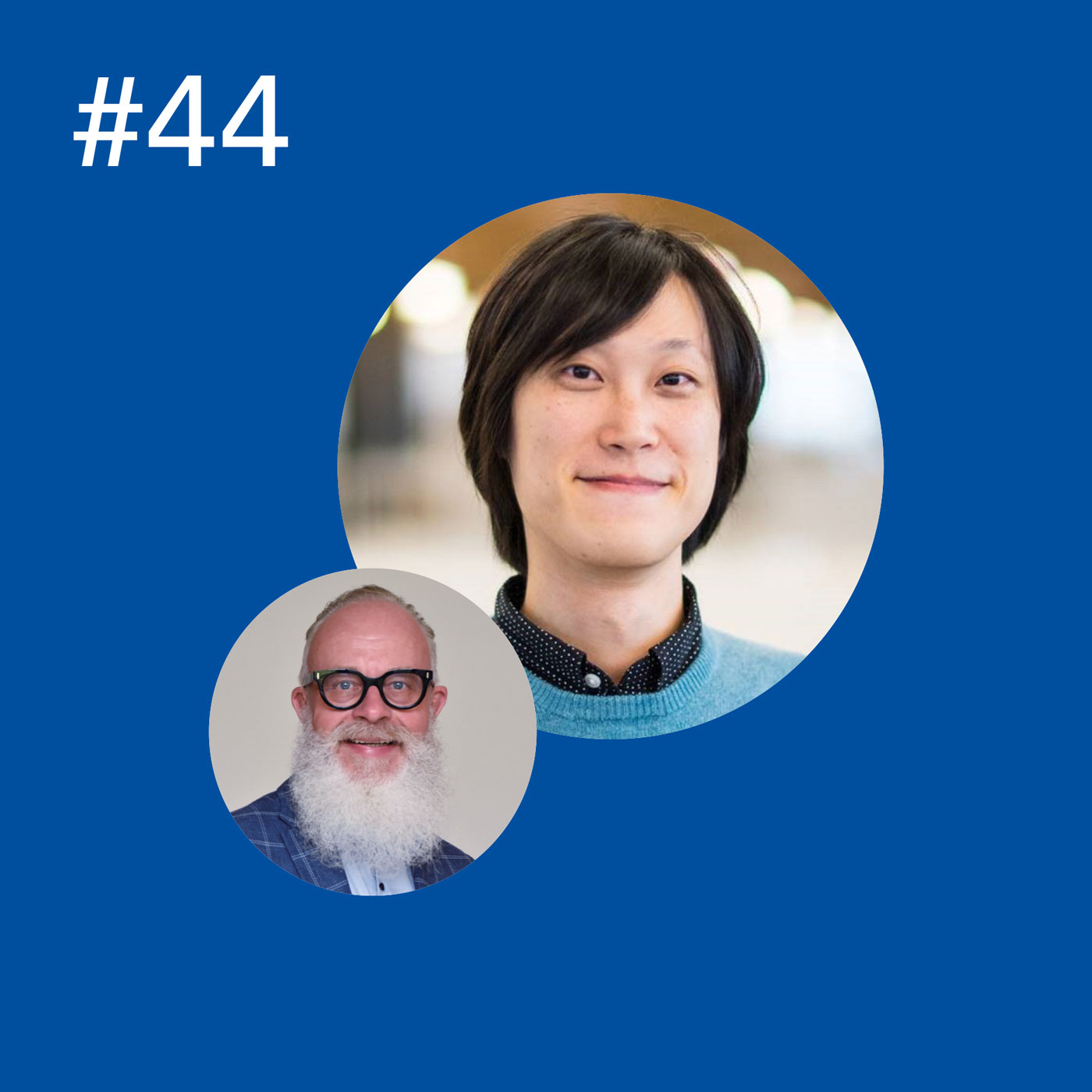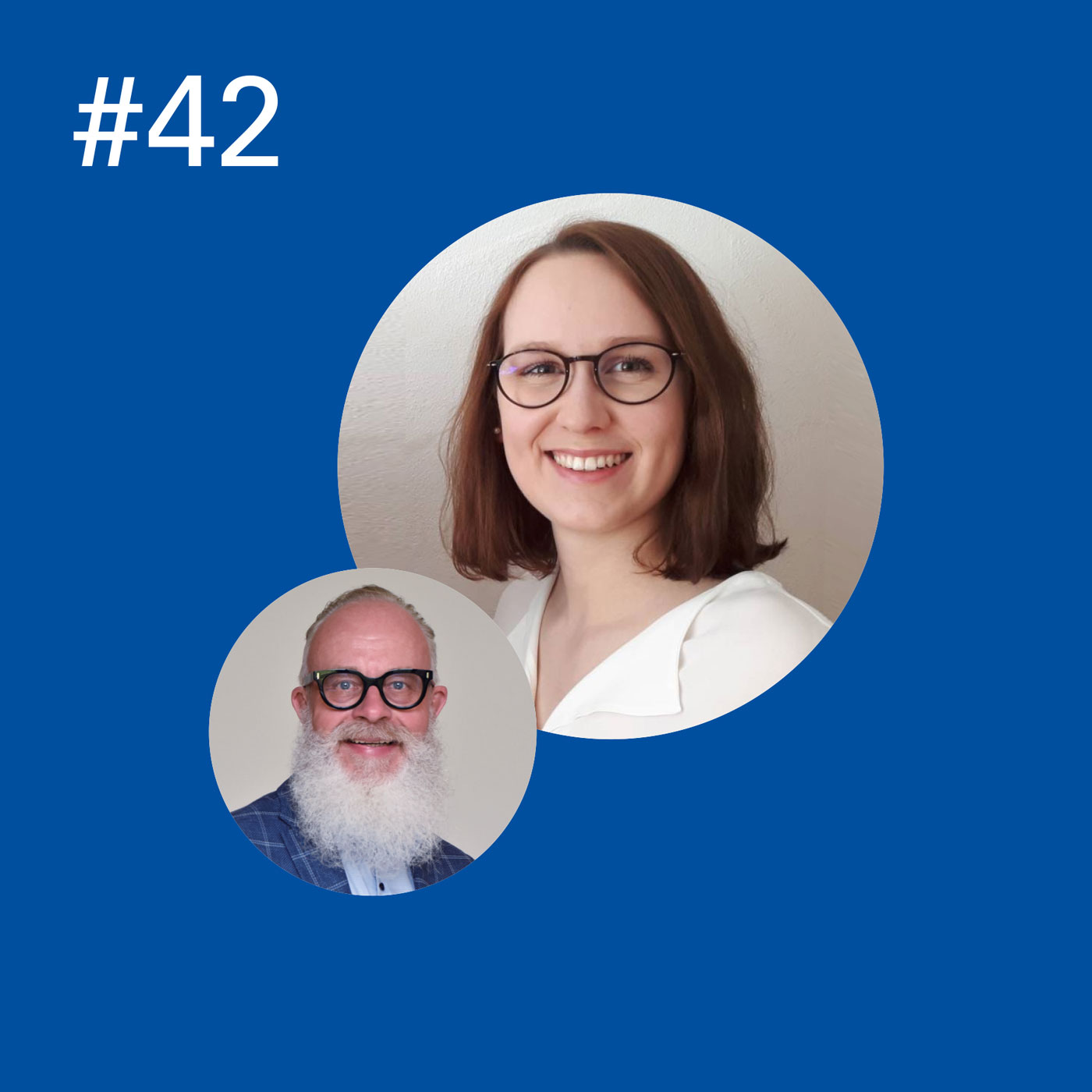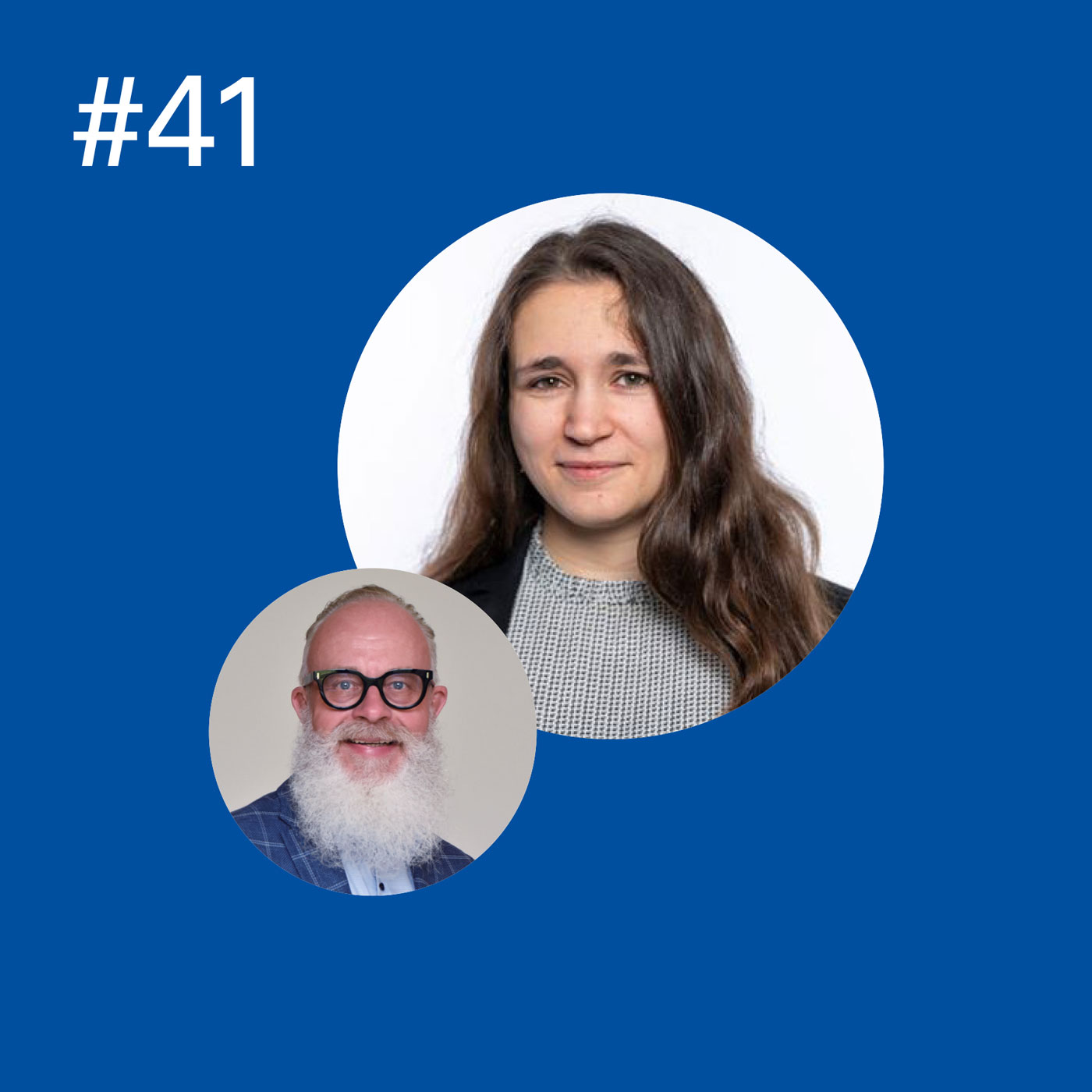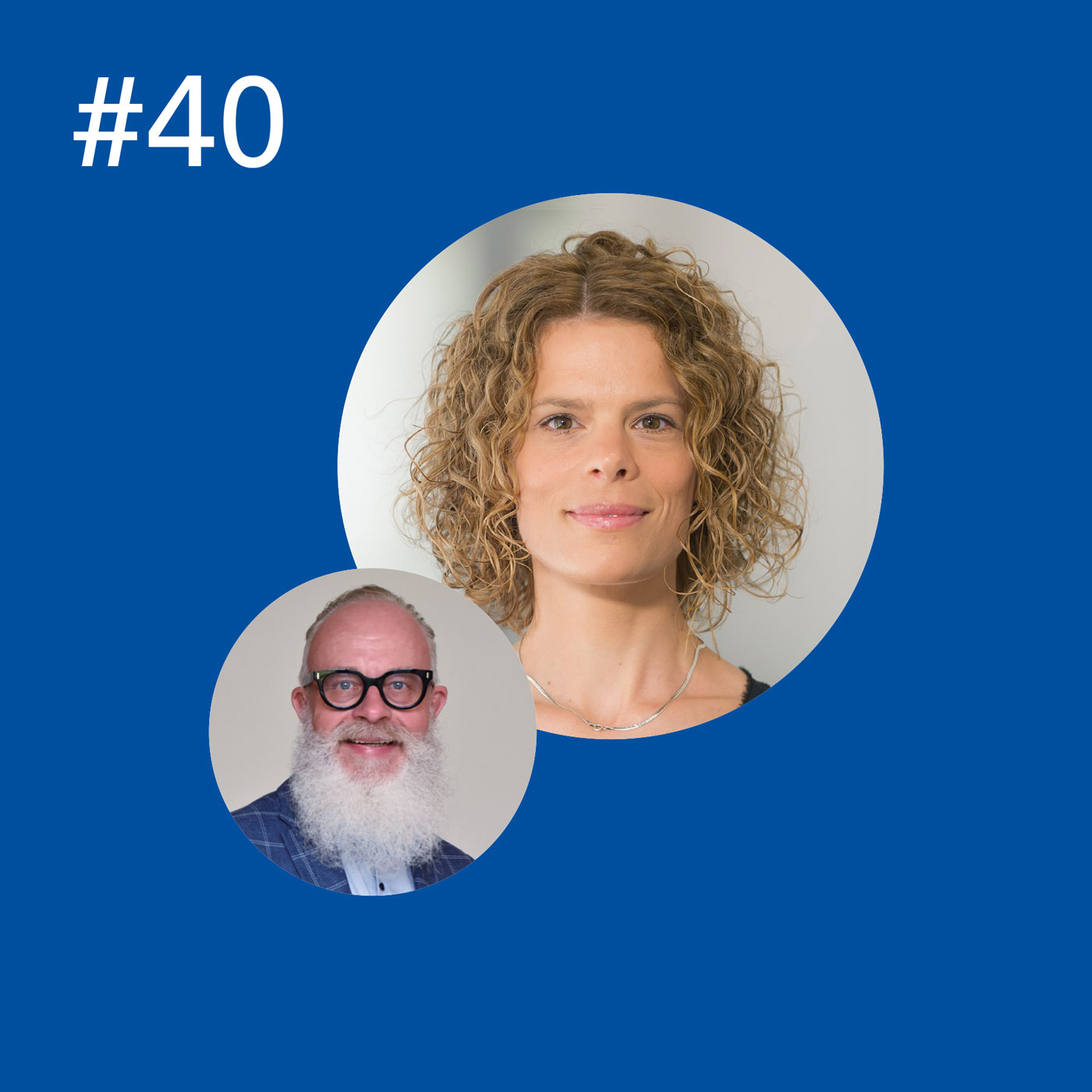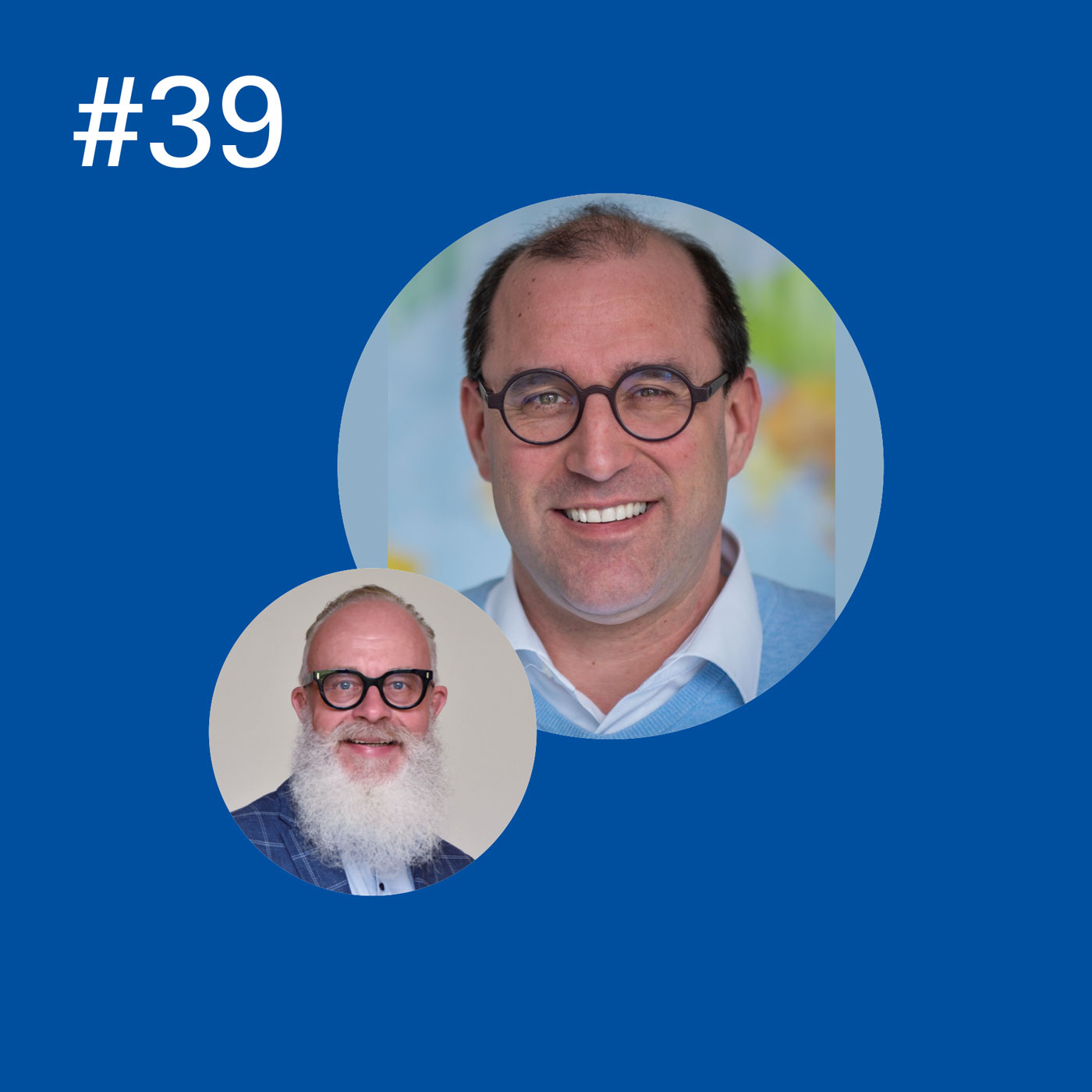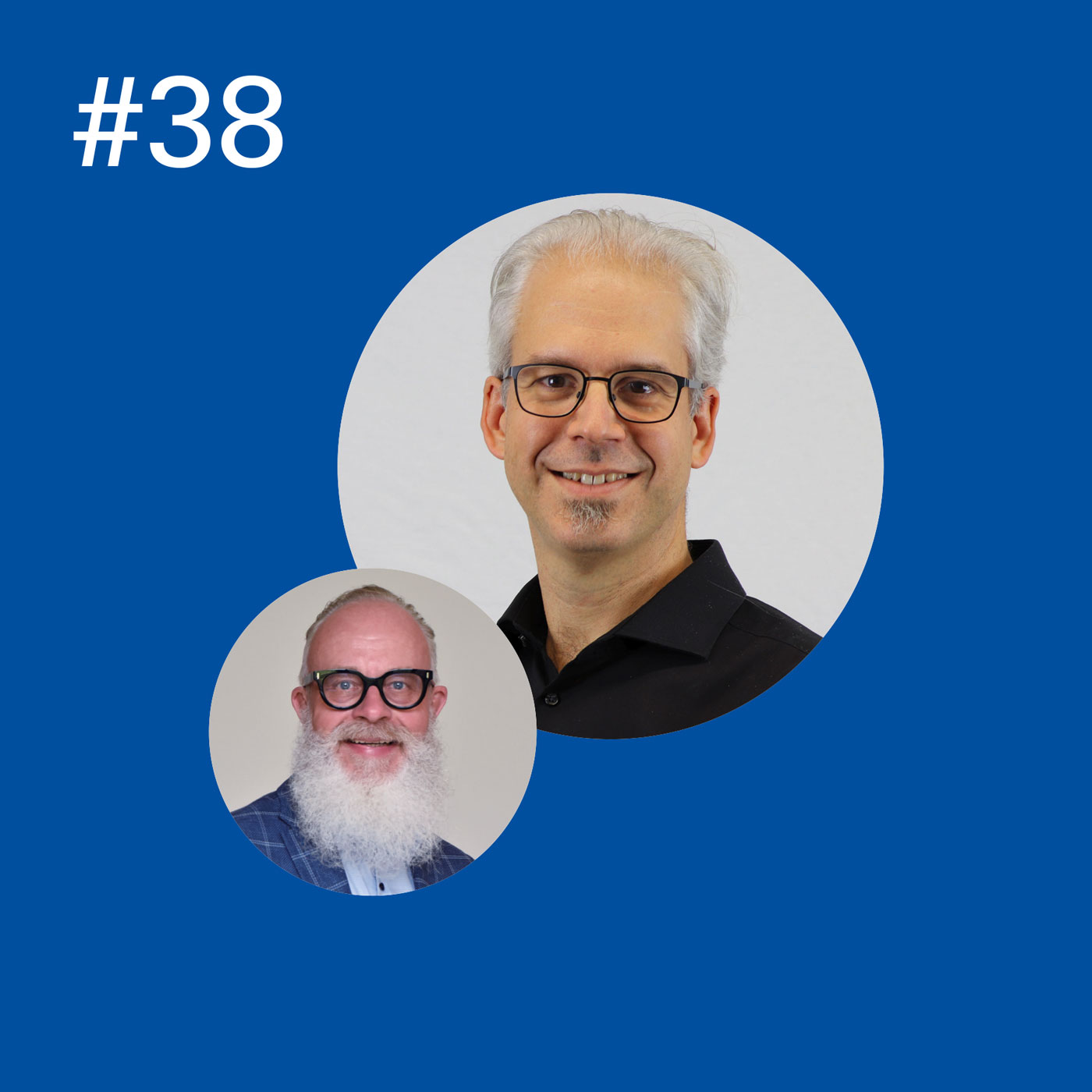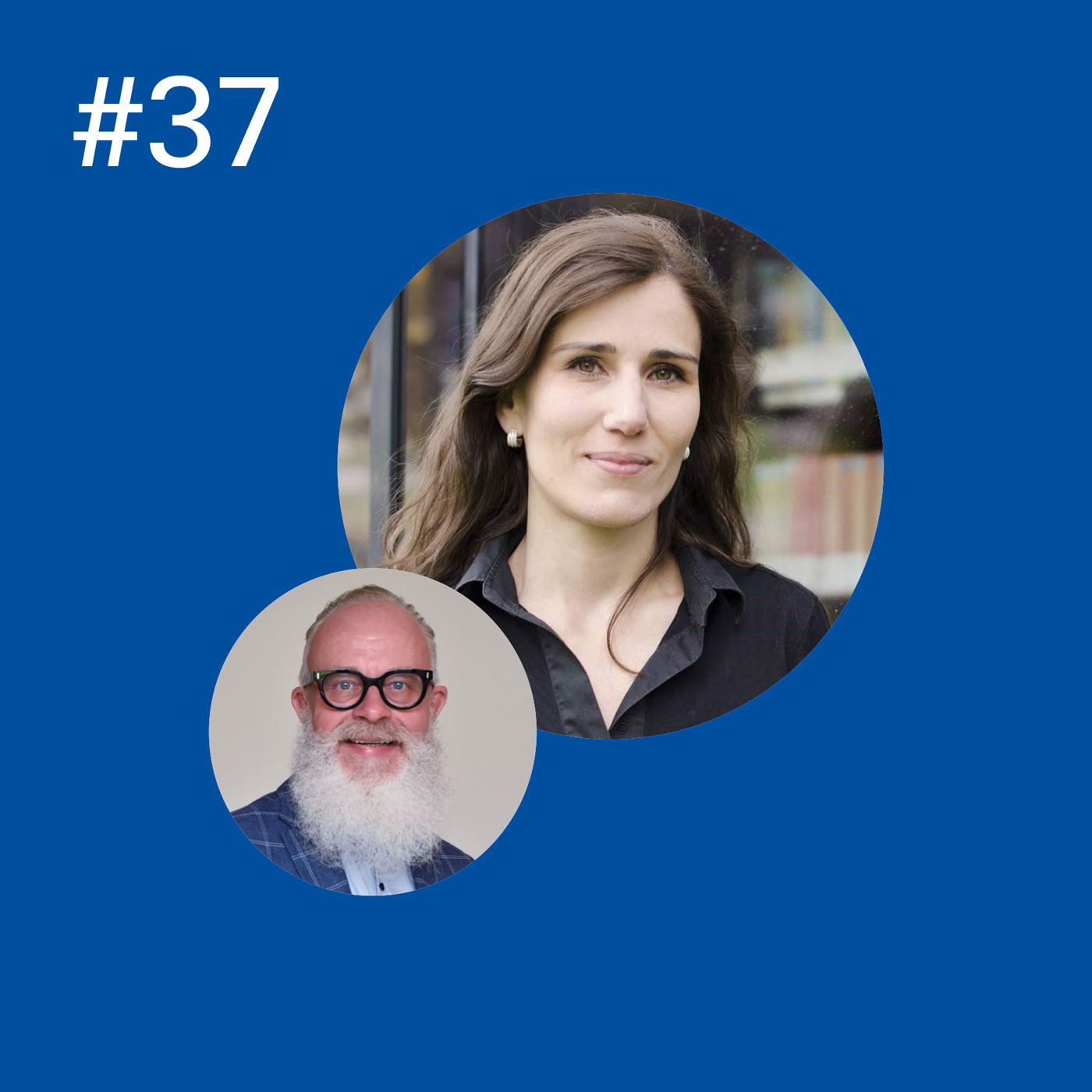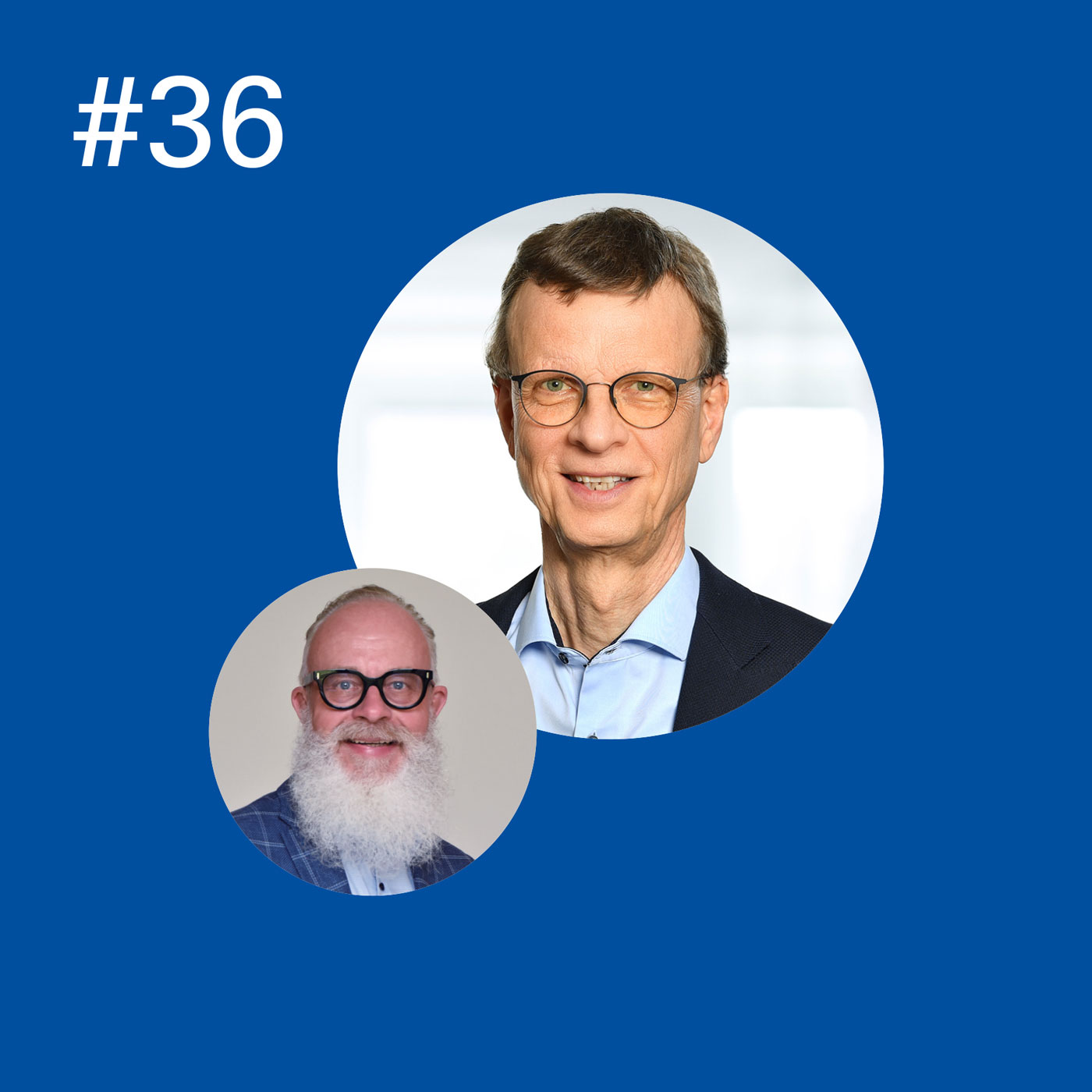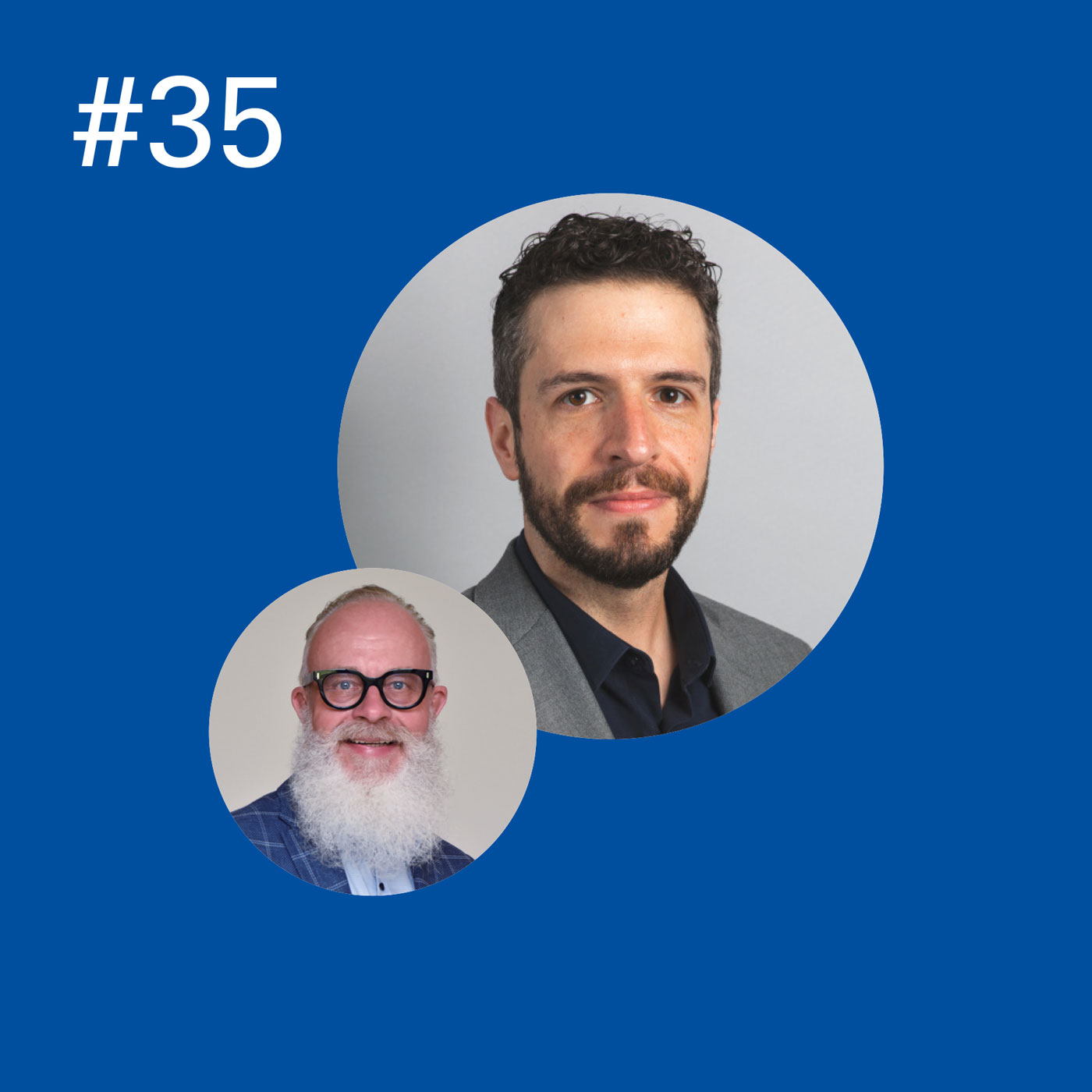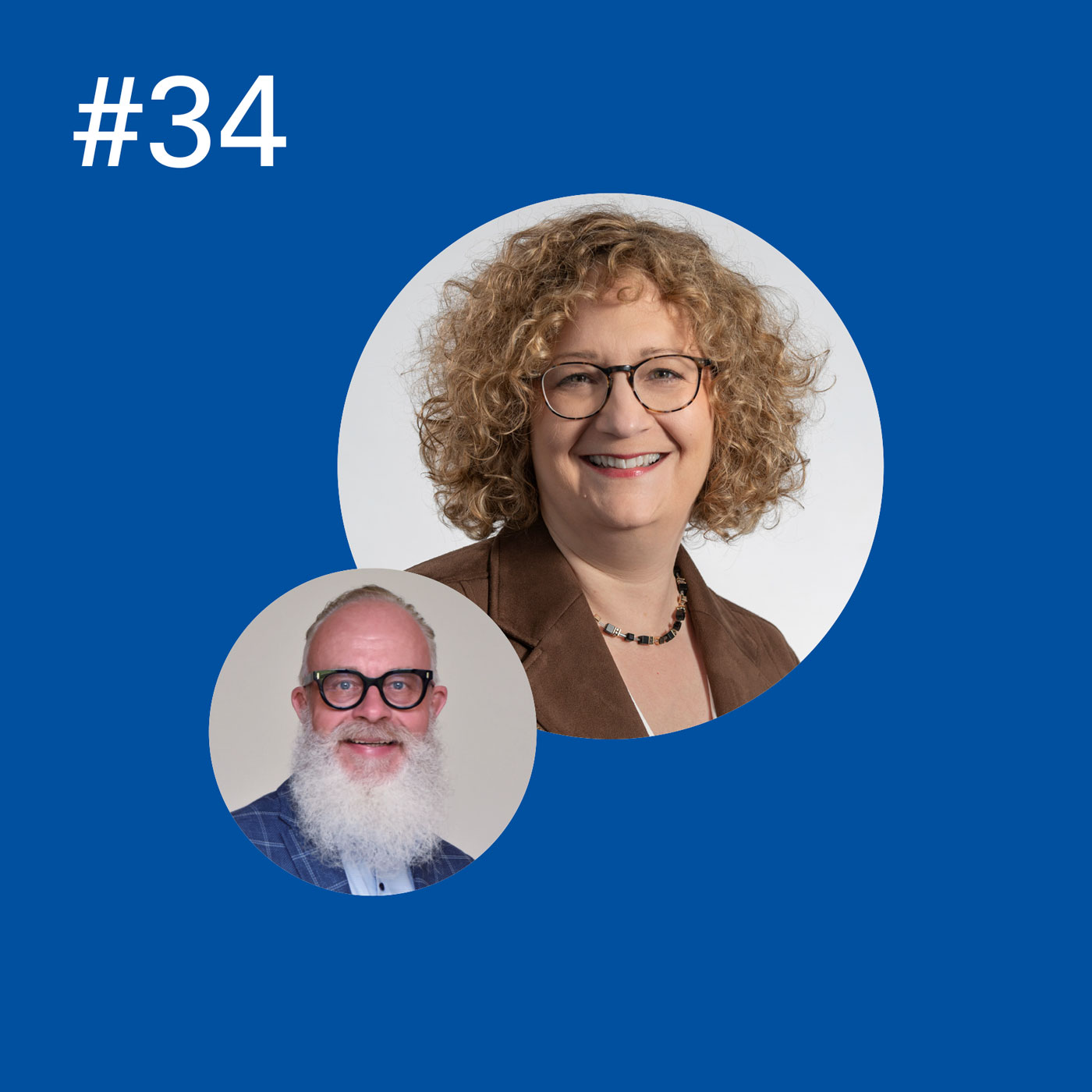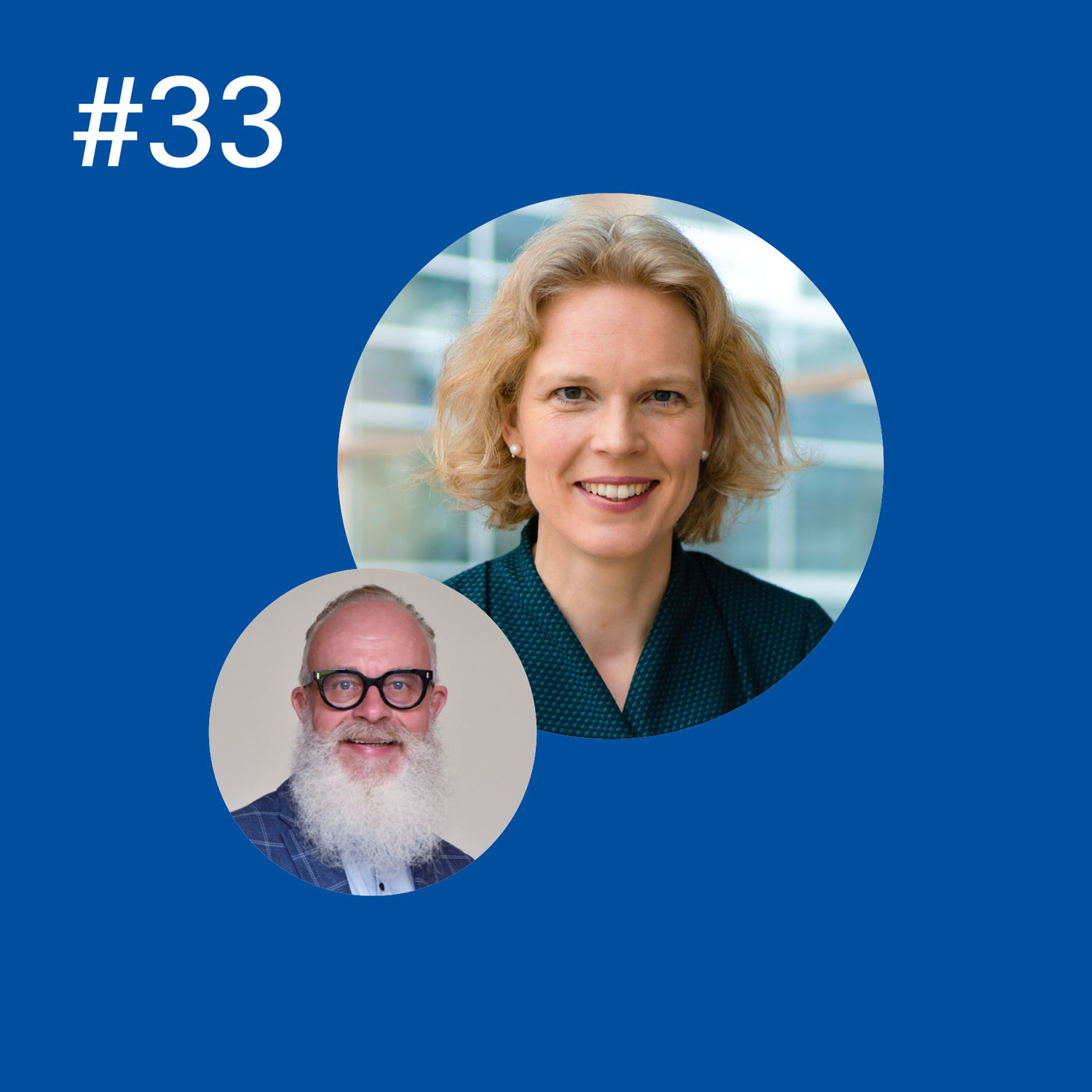Discover Made in Science – The official podcast of the University of Stuttgart
Made in Science – The official podcast of the University of Stuttgart

Made in Science – The official podcast of the University of Stuttgart
Author: Universität Stuttgart
Subscribed: 10Played: 99Subscribe
Share
© University of Stuttgart
Description
Dr. Wolfgang Holtkamp, Senior Advisor International Affairs, meets scientists, alumnae and alumni, employees and students from the University of Stuttgart. The conversations are not only about the interviewee’s current work, they also focus on their personality, what inspired them, and their career.
One thing that all of the guests have in common is that they have studied or worked at the University of Stuttgart, or are still doing so, i.e. they are "Made in Science". How did they become who they are? Looking back, what would they do differently? Which Swabian specialty do they prefer, Spätzle or Maultaschen? Holtkamp asks these and other exciting questions.
One thing that all of the guests have in common is that they have studied or worked at the University of Stuttgart, or are still doing so, i.e. they are "Made in Science". How did they become who they are? Looking back, what would they do differently? Which Swabian specialty do they prefer, Spätzle or Maultaschen? Holtkamp asks these and other exciting questions.
52 Episodes
Reverse
What if machines could learn from the softness of human skin? In this episode of Made in Science, we talk to Junior Professor Aniket Pal from the Institute of Applied Mechanics at the University of Stuttgart. He leads a cutting-edge research group exploring soft robotics – machines made entirely of soft materials like rubber or polymers.
Pal shares how his Emmy Noether-funded research bridges fundamental science and future applications: from shape-shifting soft actuators to smart catheters for MRI procedures. We discuss how artificial intelligence can help control machines with “infinite degrees of freedom” and why real innovation needs time, patience, and the courage to explore the unknown.
Whether you're curious about the future of robotics, interdisciplinary research, or how to get started as a PhD student in Germany – this episode is for you.
🎧 Listen now to find out why insight must precede application.
Transformation is not a trend – it’s a necessity.
In this episode, Professor Thomas Bauernhansl shares his vision of the future of industrial production. As Director of the Institute of Industrial Manufacturing and Management (IFF) at the University of Stuttgart and Director at Fraunhofer IPA, he discusses the shift from digital to biological transformation, the importance of sustainability as an innovation driver, and why efficiency is no longer enough.
We dive into circular economy models, new materials, systemic thinking, and the crucial role of universities and startups in shaping change. Bauernhansl also reflects on international experiences, educational reform, and how to maintain motivation in fast-paced times.
A conversation about courage, complexity – and the future we must actively design.
In this 50th edition of Made in Science, Prof. Inés de Castro – director of the Linden Museum Stuttgart and member of the University Council of the University of Stuttgart – reflects on the role of ethnological museums in a rapidly changing world.
She discusses the responsibility of institutions with colonial legacies, the importance of provenance research and restitution, and the need to foster new forms of identity and social cohesion – especially in a city where over 50% of the population has a migration background.
An insightful conversation about inclusion, transformation, and the search for “the new Stuttgart.”
How would governance work on Mars? And what can we learn about democratic preferences on Earth? In this episode, Professor André Bächtiger, a political scientist at the University of Stuttgart, discusses his ERC-funded research into the design of governance systems for the Red Planet and compares democratic models in the US, Germany and the Global South. He examines how dominant discourses shape democracy, the role of deliberation in education and the potential of AI in university discussions. Look forward to a stimulating conversation about the future of democracy - on Earth and beyond!
Professor Zamira Daw discusses her research on AI certification and integration in aerospace applications. She highlights her journey from Colombia to Germany and the US, emphasizing the importance of safety-critical systems in both medical devices and aviation. Daw explains the need for model-driven development and embedded systems to ensure AI safety in aviation. She notes the growing interest in AI but stresses its careful application. Daw also addresses the gender imbalance in STEM fields, advocating for early education to encourage girls. She highlights the importance of collaboration and mentorship in her work and the need for a balance between innovation and safety in AI.
Our interviewee is Amrei Bahr, a philosopher specialising in applied ethics, aesthetics and the philosophy of technology at the University of Stuttgart. She is one of the co-founders of the university policy initiative ‘I am Hanna’. We talk about her research on applied ethics. She criticises the current open access publication system, which she believes is still a financial burden for many researchers. Bahr also emphasises the ethical problems of global waste management, in particular the harmful conditions in the recycling of electronic waste in Ghana. She argues in favour of a more differentiated approach to recycling and calls for better working conditions in academia, referring to her campaign against fixed-term contracts.
The podcast features Dr. Gidok Kim, a leading scientist in thin-film technology at the Max Planck Institute for Solid State Research in Stuttgart. The host discusses his career journey, his experiences as a researcher, and his time at Samsung Electronics. The episode offers fascinating insights into the life of a scientist and the intersection of industry and research.
Join us for an inspiring conversation with Dr. Thilo Hagendorff, a visionary researcher and ethical trailblazer in the field of generative artificial intelligence.
He heads the Ethics of Generative AI research group at the University of Stuttgart, where he also conducts research in the[ Interchange Forum for Reflecting on Intelligent Systems (IRIS)](https://www.iris.uni-stuttgart.de/).
Find out how his interdisciplinary journey from philosophy to computer science has shaped his work in the field of AI safety, the challenges of ‘outlawed knowledge’ and his important role in shaping AI governance.
But there is also a life beyond research: Hagendorff is a world record-breaking cyclist, a passionate animal rights activist and an author whose undercover investigations earned him a media award.
Whether it's the future of AI, personal growth through sport or the courage to tackle ethical dilemmas, this episode is a captivating insight into innovation and integrity.
This episode is about ‘3D computational geometry and architecture’. Our guest is Dr Gene Ting-Chun Kao, an R&D engineer from Stockholm. Dr Kao studied on the ITECH (Integrative Technologies and Architectural Design Research) Master's programme at the University of Stuttgart. In our conversation, we talked about the triple challenge of being a designer, engineer and scientist, about the role of technology in architectural design and why cooking is like engineering.
Our guest is Emese Weissenbacher, Chief Financial Officer (CFO) and Deputy Chairwoman of the Management Board at MANN+HUMMEL. She completed her studies in technically oriented Business Administration at the University of Stuttgart in 1994. The study programme is currently celebrating its 50th anniversary. Weissenbacher is one of the few women to have reached a position of influence in the male-dominated world of the automotive supply industry. We talk about her career path, the importance of topics such as digitalisation and sustainability in the world of work, and how a team leader should behave when taking charge of a new team. An inspiring conversation!
We are talking to Franziska Hild, doctoral researcher at the Institute of Space Systems in the group Numerical Simulation at the University of Stuttgart. We talk about the prestigous Amelia Earhart Fellowship and what Franziska Hild thinks about theory and testing. Furthermore, we would like to know what she would bring back to Earth from a visit to space.
We speak to tenure-track professor Anja Lauer from the Institute for Construction Materials. Topics of the discussion include the IntCDC excellence cluster and its novel approach for the construction sector, the importance of diversity in her field of research, her stay abroad in Japan and which robot she would like to have to make everyday life easier.
Our guest is Prof. Andrea Barth, Head of Research Group for Computational Methods for Uncertainty Quantification at University of Stuttgart.
We talk about the uniqueness of the Cluster of Excellence SimTech https://www.simtech.uni-stuttgart.de/, how to find a doctoral adviser, what she has learnt from her time as a Phd student for her current interactions with them and why it is wise to have a plan B in life.
He knows the University of Stuttgart from different angles: Prof Ingmar Kallfass studied electrical engineering here, and since 2013 he has been Director of the Institute for Robust Power Semiconductor Systems, a newly founded facility of the Robert Bosch Centre for Power Electronics. Let us find out, why he returned and what is currently going on in his field of research. Why he thinks electrical engineering has a wrong public image in Germany and what all of us can do to protect the planet.
Prof. Peter Pott is Head of the Institute of Medical Device Technology at the University of Stuttgart and an expert in mechatronic systems in a medical technology context. We talk to him about biomedical systems as an up-and-coming field at the University of Stuttgart and the importance of meaningfulness for prospective students when choosing a study program. We also find out what significance a research stay in New Zealand had on his path.
Episode 37 of our podcast "Made in Science" is all about Shakespeare. We discuss this with our guest Professor Sybille Baumbach, who has been full Professor of English literature
at the Department of English Literatures and Cultures at the University of Stuttgart since 2018. She has just been awarded an ERC Advanced Grant by the European Research Council for her "LitAttention" project. Baumbach is also President of the renowned German Shakespeare Society, one of the oldest literary societies in Germany and the world. In any case, there were many interesting topics to discuss with her.
Our interview partner is Prof. Dr. Michael Totzeck, ZEISS Fellow and Head of Corporate Research and Technology. His focus today is on quantum technology, artificial intelligence and additive manufacturing. The physicist set up his own working group at the Institute of Technical Optics at the University of Stuttgart in 1995, which he headed for seven years. Through his research activities at ZEISS, an honorary professorship at the University of Konstanz and as a member of the advisory board of the Stuttgart Research Center of Photonic Engineering (SCoPE), he actively contributes to the combination of academic research and industrial research.
We talk about success, how new ideas are created at ZEISS and how he brings the industrial perspective to the University of Stuttgart.
Our guest is Dr. Luiz Chamon from Brazil, who came to the University of Stuttgart in 2022. He heads is own research group at the at the Cluster of Excellence SimTech and ELLIS. His research areas covers optimization, signal processing, machine learning, and control, particularly in some intersection of these fields. In our conversation we hear about different forms of learning, some of his international expierences, music in his life and what it is all about "living next door to ELLIS".
More:
https://www.luizchamon.com/
https://www.simtech.uni-stuttgart.de/
https://ellis.eu/
Professor Sabine Ludwigs, who is our podcast guest today is heading an interdisciplinary and international research team of polymer chemists, physical chemists and material scientists who are developing functional and intelligent polymer materials and devices. We talk with her about chemistry at the University of Stuttgart and her research activities, about functional soft materials and Soft Robotics about the role of Music in her life and not to forget the new Center for Bionic Intelligence Tübingen Stuttgart (BITS).
More:
https://www.ipoc.uni-stuttgart.de/fp/team/Ludwigs-00001/
https://www.uni-stuttgart.de/en/university/news/all/The-new-Center-for-Bionic-Intelligence-Tuebingen-Stuttgart/
https://www.bionic-intelligence.org/
We talk to Professor Katharina Hölzle, who has headed the Institute of Human Factors IAT at the University of Stuttgart and the Fraunhofer Institute for Industrial Engineering IAO since 2022. Among other things, we talk about how the work of the future is being researched, what Hölzle advises the political level on and why the education system needs to be changed. Many inspiring statements can be heard in this interview.
All episodes: https://www.uni-stuttgart.de/en/university/forall/podcast/


